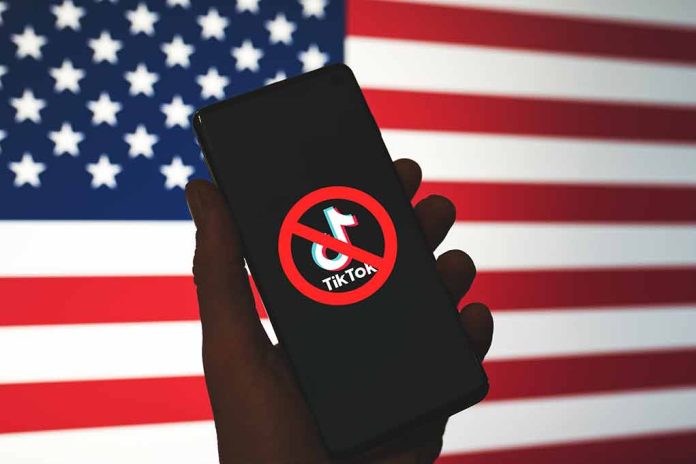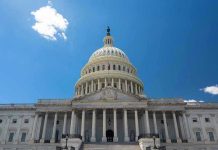
TikTok faces potential U.S. ban as January 19 deadline looms, raising concerns over national security and free speech.
At a Glance
- TikTok could be banned in the U.S. unless its Chinese parent company, ByteDance, sells by January 19
- U.S. officials cite national security concerns, alleging ByteDance’s links to the Chinese government
- TikTok and ByteDance deny government links and have filed legal challenges against the law
- The Supreme Court is considering TikTok’s plea to overturn the ban
- President-elect Donald Trump is seeking a delay for a “political” solution
TikTok Ban Looms as National Security Concerns Persist
The popular video-sharing app TikTok is facing a potential ban in the United States, as concerns over national security and data privacy continue to mount. The U.S. government has set a deadline of January 19 for TikTok’s Chinese parent company, ByteDance, to sell the app or face a shutdown in the country. This ultimatum stems from a law passed in April 2024, known as the Protecting Americans from Foreign Adversary Controlled Applications Act (PAFACA), which requires ByteDance to find a U.S.-approved buyer within nine months.
The U.S. Justice Department has labeled TikTok “a national-security threat of immense depth and scale,” citing concerns over ByteDance’s alleged links to the Chinese government. Officials fear that the company could be compelled to share user data with Beijing under China’s security laws. This potential data sharing has raised alarms among U.S. policymakers, leading to the push for a ban or forced sale of the app.
U.S. TikTok ban | What users can expect and if there is a way around https://t.co/7ZRUSPtbKe
— 13News Now (@13NewsNow) January 14, 2025
TikTok’s Response and Legal Challenges
In response to these allegations, TikTok and ByteDance have vehemently denied any government links and have filed legal challenges against the law. The companies argue that the ban is “unconstitutional” and would have “staggering” consequences for their business. TikTok’s lawyers have taken their case to the U.S. Supreme Court, pleading for the ban to be overturned.
“On January 19th, as I understand it, we shut down,” TikTok lawyer Noel Francisco stated, highlighting the severity of the situation.
The potential ban has significant implications for TikTok’s vast user base in the United States, including content creators and small businesses that rely on the platform for their livelihoods. Jess Maddox, an expert on social media influencers, warned about the potential impact, “A TikTok ban would be absolutely catastrophic for the creators and the small businesses who rely on it. I’ve spent my career talking to creators and influencers, they are resilient, they’ll pivot, but it will be a struggle in the meantime and take a hit to them financially.”
Political Implications and Possible Solutions
The TikTok ban debate has taken on political dimensions, with President-elect Donald Trump seeking a delay in the implementation of the ban. Despite previously opposing TikTok, Trump has recently defended the app, asking the Supreme Court to pause the law. This shift in stance has added another layer of complexity to the ongoing debate.
Several potential solutions are being explored to address the national security concerns while preserving TikTok’s operations in the U.S. One such proposal, known as Project Texas, involves having Oracle host U.S. user data and oversee data flows to ensure compliance with the law. This arrangement could potentially satisfy the government’s security concerns while allowing TikTok to continue operating in the country.
“Even as the application degrades on your phone, you may still be able to access it through a virtual private network on a web browser,” noted Kate Ruane, an expert on the subject, highlighting potential workarounds for users if the ban takes effect.
The Road Ahead
As the January 19 deadline approaches, the fate of TikTok in the United States remains uncertain. The Supreme Court’s decision on TikTok’s plea and President-elect Trump’s actions upon taking office will play crucial roles in determining the app’s future. The outcome of this debate will have far-reaching consequences not only for TikTok and its users but also for U.S.-China relations and the broader landscape of digital governance and international trade. The TikTok ban controversy underscores the complex challenges facing policymakers as they navigate the intersection of national security, data privacy, and free speech in an increasingly interconnected digital world.









